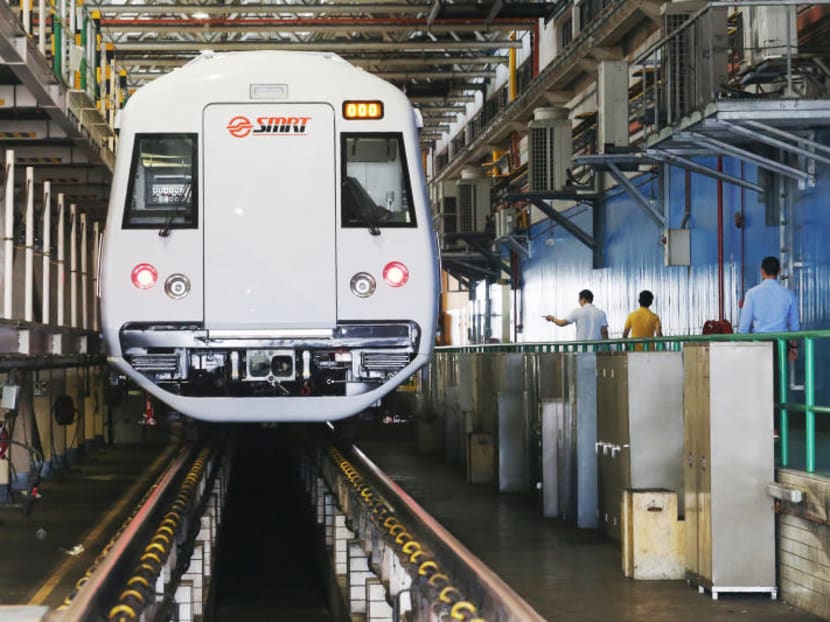Signalling trials on North-South Line to involve more trains
SINGAPORE — Despite some glitches, the two all-day trials of the new signalling system on the North-South Line have so far been "fairly successful" and more trains would be part of the tests over the next few weeks, rail operator SMRT said on Monday (April 24).

Trials of the new signaling system on the North-South Line so far have been “fairly successful” and more trains will be placed on trial over the next few weeks, said SMRT. TODAY file photo
SINGAPORE — Despite some glitches, the two all-day trials of the new signalling system on the North-South Line have so far been "fairly successful" and more trains would be part of the tests over the next few weeks, rail operator SMRT said on Monday (April 24).
As part of the increased trials - set to last two months from two Sundays ago - the intervals between trains on Sundays will also be trimmed from about three minutes down to two.
This will allow the signalling system to be put through its paces at the same frequency as that for normal operations on weekdays.
Mr Desmond Kuek, group chief executive of SMRT, told reporters on Monday at a briefing on rail reliability that once the operator is more confident of the system's performance in such situations, it can then be rolled out fully. With it, trains can run at closer intervals, shortening the waiting time for commuters.
Under the new system, train doors open and shut automatically instead of manually. During earlier trials on weekday nights, this feature did not work at times.
SMRT Trains managing director Lee Ling Wee said there were also times during the Sunday trials when platform screen doors failed to shut.
He added that switching to an electric system would eliminate the problem, but SMRT is working with its re-signalling contractor, Thales, and the Land Transport Authority to work out an "interim solution".
Another issue was that emergency brakes were activated when a signal was lost - a safety feature of the new system - which at times caused a delay of no more than a minute as trains were reset.
Mr Kuek said that, through these, at least, the operator knows where the signals were being lost, and the signalling system was "working exactly according to specification".
Mr Lee ascribed the problems partly to drivers being unfamiliar with the new system, and they would receive "enhanced training". System-related issues would be resolved through hardware improvements and working with Thales to fix software bugs.
On Monday, SMRT also reported that rail reliability on the North-South Line has improved. In the 12 months until the end of March, trains ran an average of 180,000 train-km before encountering a delay of more than five minutes.
This is better than the "mean kilometre before failure" (MKBF) of 156,000 train-km recorded last year. The MKBF is a measure of train reliability across the MRT network.
Trains on the Circle Line clocked an average of 282,000 train-km before hitting similar delays, better than the 228,000 train-km last year.
However, the East-West Line stagnated at an MKBF of 145,000 train-km. Mr Lee explained that the North-South Line had an earlier upgrading schedule than the East-West Line, in terms of components being renewed. Mr Kuek is confident that the East-West Line's reliability will improve once upgrading works get up to pace.
The Government has set an MKBF target of 300,000 train-km for the rail network this year. Last year, the MKBF for the entire MRT network was 174,000 train-km, lower than the target of 200,000 train-km.
There were 16 major train disruptions across the entire network last year, and the East-West Line was the worst performer with five incidents.








